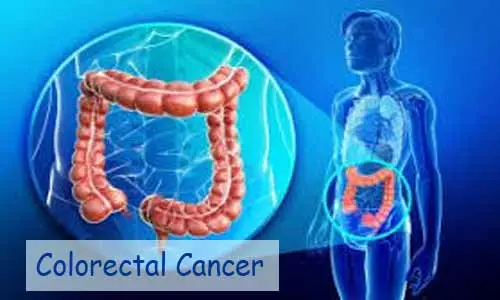- Home
- Medical news & Guidelines
- Anesthesiology
- Cardiology and CTVS
- Critical Care
- Dentistry
- Dermatology
- Diabetes and Endocrinology
- ENT
- Gastroenterology
- Medicine
- Nephrology
- Neurology
- Obstretics-Gynaecology
- Oncology
- Ophthalmology
- Orthopaedics
- Pediatrics-Neonatology
- Psychiatry
- Pulmonology
- Radiology
- Surgery
- Urology
- Laboratory Medicine
- Diet
- Nursing
- Paramedical
- Physiotherapy
- Health news
- Fact Check
- Bone Health Fact Check
- Brain Health Fact Check
- Cancer Related Fact Check
- Child Care Fact Check
- Dental and oral health fact check
- Diabetes and metabolic health fact check
- Diet and Nutrition Fact Check
- Eye and ENT Care Fact Check
- Fitness fact check
- Gut health fact check
- Heart health fact check
- Kidney health fact check
- Medical education fact check
- Men's health fact check
- Respiratory fact check
- Skin and hair care fact check
- Vaccine and Immunization fact check
- Women's health fact check
- AYUSH
- State News
- Andaman and Nicobar Islands
- Andhra Pradesh
- Arunachal Pradesh
- Assam
- Bihar
- Chandigarh
- Chattisgarh
- Dadra and Nagar Haveli
- Daman and Diu
- Delhi
- Goa
- Gujarat
- Haryana
- Himachal Pradesh
- Jammu & Kashmir
- Jharkhand
- Karnataka
- Kerala
- Ladakh
- Lakshadweep
- Madhya Pradesh
- Maharashtra
- Manipur
- Meghalaya
- Mizoram
- Nagaland
- Odisha
- Puducherry
- Punjab
- Rajasthan
- Sikkim
- Tamil Nadu
- Telangana
- Tripura
- Uttar Pradesh
- Uttrakhand
- West Bengal
- Medical Education
- Industry
CT colonography most effective noninvasive colorectal cancer screening test

Leesburg, VA - According to an open-access article in ARRS' American Journal of Roentgenology (AJR), compared with multi-target stool-DNA (mt-sDNA) and fecal immunochemical test (FIT), CT colonography (CTC) with 10 mm threshold most effectively targets advanced neoplasia (AN)--preserving detection while decreasing unnecessary colonoscopies.
"CTC performed with a polyp size threshold for colonoscopy referral set at 10 mm represents the most effective and efficient non-invasive screening test for colorectal cancer (CRC) prevention and detection," clarified first author Perry J. Pickhardt from the department of radiology at the University of Wisconsin School of Medicine & Public Health.
Because the relative performance characteristics of available noninvasive tests had not yet been adequately compared, Pickhardt's team systematically searched PubMed and Google Scholar, including 10 mt-sDNA, 27 CTC, and 88 FIT published screening studies involving 25,132, 33,4932, and 2,355,958 asymptomatic adults, respectively. To determine test-positivity rates (TPR) leading to optical colonoscopy (OC), as well as positive predictive value (PPV) and detection rate (DR) for both AN and CRC, meta-analysis with hierarchical Bayesian modeling was conducted, in accordance with Cochrane Collaboration and PRISMA guidelines.
Pickhardt and colleagues' results showed that CRC prevention via screen detection of AN was highest with CTC, followed by mt- sDNA, and lowest with FIT due to the differing TPR and PPV, although overlap existed in the 95% CIs when accounting for uncertainty. Compared with mt-sDNA and CTC6, FIT and CTC10 strategies yielded substantially lower colonoscopy resource utilization, while mt-sDNA performance appeared to be similar to FIT at low positivity thresholds.
Acknowledging that each CRC screening option has relative advantages and disadvantages that should be carefully considered and tailored to the individual, "in the end," the authors of this AJR article concluded, "the 'best' test may be the one that the patient is willing to undergo."
https://www.ajronline.org/doi/10.2214/AJR.20.25416
Hina Zahid Joined Medical Dialogue in 2017 with a passion to work as a Reporter. She coordinates with various national and international journals and association and covers all the stories related to Medical guidelines, Medical Journals, rare medical surgeries as well as all the updates in the medical field. Email: editorial@medicaldialogues.in. Contact no. 011-43720751
Dr Kamal Kant Kohli-MBBS, DTCD- a chest specialist with more than 30 years of practice and a flair for writing clinical articles, Dr Kamal Kant Kohli joined Medical Dialogues as a Chief Editor of Medical News. Besides writing articles, as an editor, he proofreads and verifies all the medical content published on Medical Dialogues including those coming from journals, studies,medical conferences,guidelines etc. Email: drkohli@medicaldialogues.in. Contact no. 011-43720751


